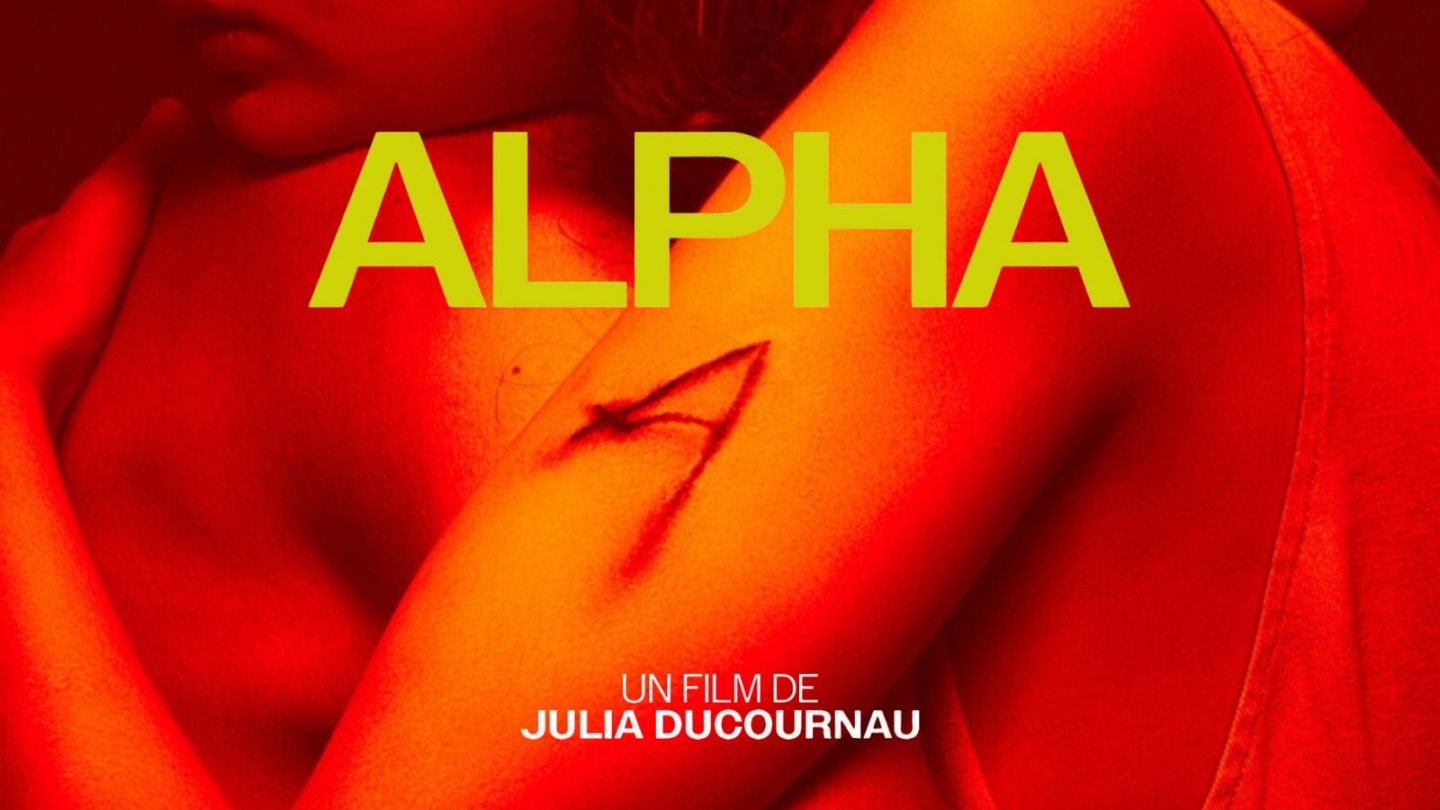Euronews Culture's Film of the Week: 'Alpha' - Julia Ducournau tears into the soul rather than flesh
Julia Ducournau returns with her third film, destined to be her most divisive yet. But for those who choose to let go, the French writer-director shows that 'Titane' needn’t be a tough act to follow.
From the opening shot of Alpha, Julia Ducournau’s follow-up to her mind-melting Palme d’Or-winning body horror film Titane, you could be forgiven for thinking that you’re being eased into another tale of gory excess.A small hand plays connect-the-dots with the abscessed needle marks on an adult arm, showing a child not repulsed by the harshness of a world she may not yet fully understand. This is a child seeing the opportunity to create beauty through constellations.It’s a striking way to start her third feature film, promising more of the French writer-director’s unparalleled ability to marry an unflinching fascination for bodies and physical transformations with graphic genre thrills.Alpha is something else though. Something different and less in-you-face. Something undoubtely more oblique and messy compared to Raw and Titane. Something that sees Ducournau refusing to rest on her laurels and deliver an ambitious, evocative and emotion-driven experience that will perplex at first but reward those willing to embrace all of Alpha’s allegorical strata.That small hand belongs to Alpha (Mélissa Boros), a now 13-year-old girl who lives in a dust-filled world which has survived an epidemic which took place in the recent past.We don’t know much about “the virus”. It seems to be spread via needles and sexual contact and appears to kill the infected by calcifying them. Victims eventually turn to stone, leaving survivors with bodies that look like marble statues.When the teen’s mother (Golshifteh Farahani, whose character goes unnamed), a doctor, discovers her new tattoo – a crudely done letter A that was poked during a drunken party - she is terrified her daughter could have been contaminated. They must get Alpha’s blood tested to be sure.That same evening, Alpha’s drug addict uncle Amin (Tahar Rahim), whose arm no longer has constellations, mysteriously turns up at the family home. His health is deteriorating and despite initial tension, Amin manages to build a bond with his niece, whose leaking tattoo bandage leads her classmates to ostracise her.These school scenes are some of the film’s strongest, merging both Stephen King’s "Carrie" with Nathaniel Hawthorne’s "The Scarlet Letter" to better show our heroine as a pariah. One ingeniously shot sequence in the school swimming pool, in which Alpha’s rapidly oozing blood causes panic, shows to what extent Ducournau can craft striking imagery that enmeshes eeriness and beauty.The filmmaker matches her aesthetic flare with rich themes, as she quickly establishes a clear allegory about the 1980s AIDS crisis, with the virus turning its victims to stone being this movie’s HIV and provoking the same societal effects that led to the burden of abandonment and blame felt by the LGBTQ+ community at the height of the global pandemic. Audiences also see this through Alpha’s gay English teacher (Finnegan Oldfield), whose partner is rapidly turning to stone.Those who only stick to the baseline parallel between those who become entombed in their own calcified bodies and the victims of AIDS may themselves feel cold as stone regarding Alpha. As for audiences expecting the same subversive jolt provoked by Raw and Titane, they may be taken aback by what looks like a more muted offering. However, dare to venture deeper into the film’s initially impenetrable storytelling rhythms – chiefly the confusion that decries from the shifting time frame, in which hairstyles become a useful signifier - and the film reveals itself as a profound reflection on themes central to Ducournau’s previous films: unconditional love and accepting to embrace those considered as Other – no matter what.Alpha reveals itself as a slow burning meditation on the guilt and grief between a brother and a sister - both masterfully played by Farahani and Rahim, whose withered and ghostly physique is both unsettling and a sly clue as to where the film is heading. From there, it explores how that trauma can not only calcify a person but also be passed on, like a virus, to the next generation. Another standout scene in which Alpha and Amin dream-sync their nightly convulsions shows that these two share more than just the same initial; they are symptoms of cyclical behaviours that persist when you can’t let go.Without spoiling the film’s final act reveal, the acceptance of death's inevitability is central to Alpha. As Alpha’s teacher says in class, reciting Edgar Allan Poe: “All that we say or seem is but a dream within a dream.” Beyond telling us that Ducournau is daring to break from conventional narrative structures, the line offers up the core of this striking film: whether we choose to relinquish control or stay petrified by our stubbornness to hold on, it’s always going to be ashes to ashes, dust to dust.Destined to be divisive, for different reasons than her first two films, Alpha will frustrate those looking for immediate answers, non-bleeding timelines or the same visceral body horror Ducournau has become known for.While she could have dwelled a bit longer on the deteriorating bodies and the metamorphosis leading to grimacing statues – even if one medical exam does straddle the horrific and the poetic in a manner only she can manage – Alpha is just as layered and impactful as the filmmaker's past offerings.Ducournau is exploring the boundaries of body horror. She’s just looking to tear up your soul more than your flesh with this one.Alpha is out in French cinemas now. It continues its European theatrical rollout this fall.


